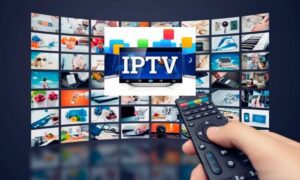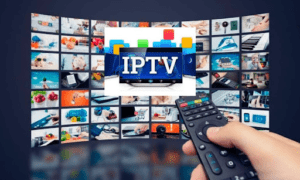Introduction to IPTV
In today’s digital age, the way we consume entertainment has undergone a significant transformation. Internet Protocol Television, commonly known as IPTV, has emerged as a popular alternative to traditional cable and satellite television services. With its ability to deliver a wide range of content over an internet connection, IPTV has revolutionized the television viewing experience for millions of users worldwide.
What is IPTV?
IPTV refers to the delivery of television content over Internet Protocol (IP) networks. Unlike traditional television broadcasting methods, which rely on satellite signals or cable connections, IPTV utilizes internet protocols to transmit multimedia content to viewers’ devices. This enables users to access their favorite TV shows, movies, and other media content through an internet connection, regardless of their location.
Types of IPTV Services
IPTV services come in various forms, catering to different preferences and viewing habits. Some of the most common types of IPTV services include:
- Live IPTV: This type of service allows users to stream live television channels in real-time over the internet. Users can tune in to their favorite channels and watch programs as they are broadcasted.
- Video on Demand (VOD): VOD services offer a vast library of on-demand content, allowing users to choose and watch movies, TV shows, and other media at their convenience.
- Time-shifted IPTV: Time-shifted IPTV enables users to rewind, pause, or fast-forward live television programs, giving them greater control over their viewing experience.
Advantages of IPTV
There are several advantages to using IPTV over traditional television services:
- Variety of content: IPTV offers a diverse range of channels and on-demand content, catering to a wide range of interests and preferences.
- Convenience: With IPTV, users can access their favorite content anytime, anywhere, as long as they have an internet connection.
- Cost-effectiveness: IPTV services often provide more affordable subscription options compared to traditional cable or satellite TV packages.
Challenges and Limitations
While IPTV offers numerous benefits, it also faces certain challenges and limitations:
- Bandwidth requirements: Streaming high-quality video content requires a stable and high-speed internet connection, which may not be available to all users.
- Quality of service issues: Factors such as network congestion and server downtime can affect the quality of IPTV service, leading to buffering and playback issues.
IPTV vs. Traditional TV
IPTV offers several advantages over traditional television services:
- Flexibility: IPTV allows users to customize their viewing experience by choosing the content they want to watch and accessing it on multiple devices.
- Interactivity: IPTV platforms often include interactive features such as on-screen menus, program guides, and social media integration, enhancing the overall viewing experience.
IPTV Trends and Future Outlook
The IPTV market is experiencing rapid growth, driven by technological advancements and changing consumer preferences. As internet connectivity continues to improve and streaming devices become more affordable, the demand for IPTV services is expected to soar in the coming years.
Security Concerns
However, the rise of IPTV also raises concerns about security and piracy. Unauthorized distribution of copyrighted content and the potential for data privacy breaches are significant challenges facing the IPTV industry.
Legal Implications
Furthermore, IPTV providers must navigate legal complexities related to copyright infringement and regulatory compliance. Ensuring that content distribution is lawful and adheres to intellectual property rights is crucial for the long-term sustainability of the IPTV ecosystem.
How to Access IPTV Services
Accessing IPTV services is relatively straightforward:
- Subscription-based services: Many IPTV providers offer subscription-based packages that grant users access to a wide range of channels and on-demand content for a monthly fee.
- Free IPTV options: Some IPTV services are available for free, although they may come with limitations such as fewer channels or lower video quality.
Popular IPTV Providers
Several IPTV providers have gained popularity in recent years, offering comprehensive entertainment solutions to users worldwide. Some of the leading IPTV providers include:
- Netflix
- Hulu
- Amazon Prime Video
- Disney+
- IPTV Smarters
IPTV Devices
Users can access IPTV services through various devices, including:
- Set-top boxes: Dedicated IPTV set-top boxes such as Roku, Apple TV, and Amazon Fire TV allow users to stream content directly to their television sets.
- Smart TVs: Many modern smart TVs come with built-in IPTV capabilities, allowing users to access IPTV services without the need for additional hardware.
Conclusion
IPTV has emerged as a game-changer in the world of television entertainment, offering users unprecedented flexibility, convenience, and access to a diverse range of content. While it presents significant opportunities for both consumers and content providers, it also poses challenges in terms of security, legality, and quality of service. As the IPTV market continues to evolve, addressing these challenges will be essential to ensuring its long-term success and sustainability.



































